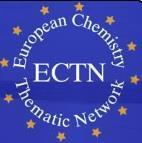European university chemistry departments work together to progress Bologna Declaration

In April the recently formed European Chemistry and Chemical Engineering Education Network (EC2E2N) met in Montpellier, France, to set out its agenda to support the framework of comparable degrees that are now emerging across Europe as a result of the work done under the 1999 Bologna Declaration.
The three-year project, which is funded by the European Commission under the Erasmus Lifelong Learning Programme brings together members of the long-established European Chemistry Thematic Network (ECTN) with those of the European Chemical Engineering Network (ECEEN). The combined EC2E2N network boasts 120 partners from 27 countries across Europe, including the UK and Ireland. While the members are predominantly from university chemistry and chemical engineering departments, industrial companies, such as GlaxoSmithKline, national European chemical societies and accreditation bodies are also involved.
The project comprises 18 working groups, which aim to develop products and processes to support such areas as: transparency of degrees; qualifications for lecturers; student-centre activities; enhancing employability;and the public image of chemistry and chemical engineering. One group, for example, is exploring the idea of a virtual campus which will act as repository for ICT materials, and plans to host online language courses for students.
Other working groups are looking into the prospect of developing:
- quality labels for teacher training programmes and accreditation for a Eurolecturer certificate;
- a training course in generic skills for third-cycle students;
- intensive summer schools for students interested in conservation science ;
- a web-based database of the different programmes of study on offer in the university departments, which could be used by students, academics and industrialists to enhance their mobility throughout Europe;
- teaching and training materials for school teachers which will explain the changes taking place in HE as a result of the Bologna process; and
- support programmes as a way of enhancing the interaction between chemists and chemical engineers and increase the employability of graduates in these areas.
For further information on the EC2E2N working groups contact Anthony Smith, the network coordinator or visit the ECTN website.






No comments yet